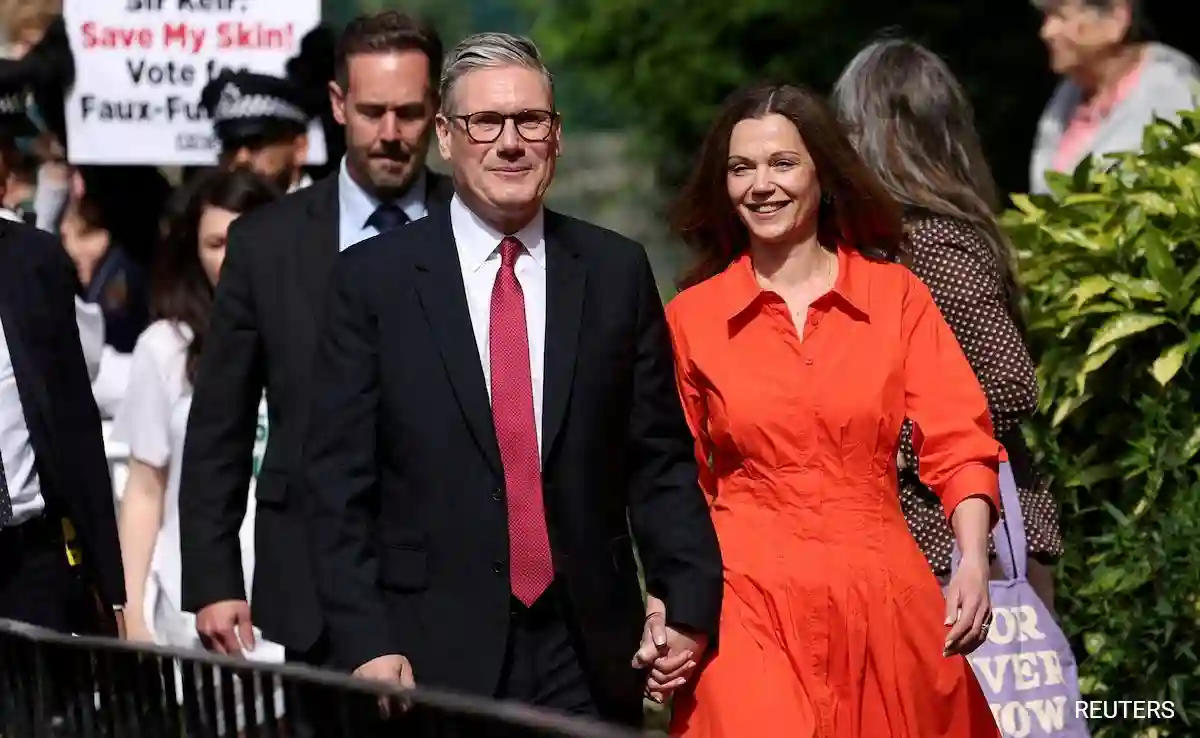The United Kingdom’s opposition Labour Party swept to power on Friday in a parliamentary election, ending 14 years of Conservative government.
According to Reuters, the centre-left Labour led by Keir Starmer won a massive majority in the 650-seat parliament.
Prime Minister Rishi Sunak’s Conservatives suffered the worst performance in the party’s long history as voters punished them for a cost of living crisis, failing public services, and a series of scandals.
With almost all the results in, Labour had won some 410 seats, an increase of 210, while the Conservatives lost about 250 lawmakers, including a record number of senior ministers and former Prime Minister Liz Truss.
The Scottish National Party (SNP) lost 38 seats, ending its own decade of dominance in Scotland and leaving its dream of independence for Scotland in tatters.
On the other hand, the Irish nationalists Sinn Fein became Northern Ireland’s largest party for the first time.
The populist right-wing Reform UK party, headed by Nigel Farage, who campaigned for Brexit and friend of Donald Trump, won more than four million votes.
In his victory speech, Starmer said:
We did it. Change begins now … We said we would end the chaos, and we will, we said we would turn the page, and we have.
Today, we start the next chapter, begin the work of change, the mission of national renewal and start to rebuild our country.
Sunak conceded defeat and will meet King Charles later to formally resign before Starmer is appointed in his place. He said:
Today power will change hands in a peaceful and orderly manner, with goodwill on all sides.
There is much to learn and reflect on and I take responsibility for the loss to the many good hardworking Conservative candidates … I am sorry.
However, Sunak will remain a lawmaker after a close race in his North Yorkshire constituency. He took 47.5 per cent of the vote in his constituency of Richmond and Northallerton in northern England.
Despite his convincing victory, polls have suggested there is little enthusiasm for Starmer or his party.
Due to Britain’s first-past-the-post (FPTP) system and a low turnout, Labour’s triumph was achieved with fewer votes than it secured in 2017 and 2019 – the latter its worst result for 84 years.
FPTP or winner-take-all is an electoral system where the candidate with the most votes in a given constituency wins the seat, regardless of whether they have received a majority of the votes. The candidate who receives the most votes, even if it is less than 50% of the total votes cast, is declared the winner.
Starmer assumes leadership amid a backdrop of formidable challenges. Britain faces its highest tax burden since just after World War Two, with net debt nearly matching annual economic output.
Living standards have declined, and public services, notably the cherished National Health Service, are strained, exacerbated by recurring strikes.
Starmer has pledged to mend relations with the European Union following Britain’s departure but has ruled out rejoining the bloc despite opposing Brexit.
He has also committed to unwavering support for Ukraine in its conflict with Russia. Starmer’s foreign policies align closely with those of Sunak.
More: Pindula News

